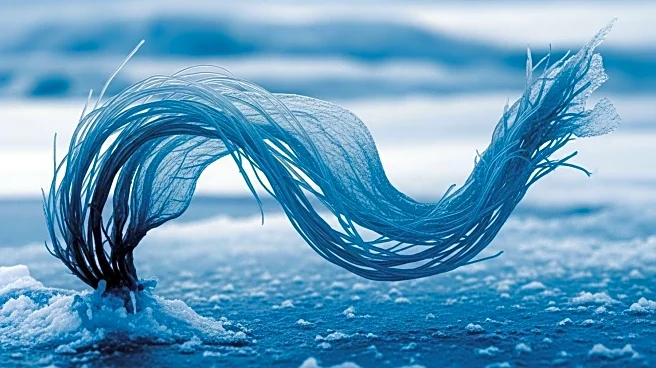What is the story about?
What's Happening?
New research has revealed that ice diatoms, a type of algae found in Arctic ice, are surprisingly active, moving within their frigid environment. This challenges previous assumptions that extremophiles, organisms living in extreme conditions, are largely immobile. The study, published in the Proceedings of the National Academy of Sciences, suggests that these algae have evolved to thrive despite harsh conditions, potentially playing a significant role in Arctic ecology.
Why It's Important?
The discovery of active algae in Arctic ice has implications for understanding microbial life in extreme environments, including potential analogs on other planets like Mars. It highlights the adaptability of life and its ability to influence ecological processes. This research could inform studies on climate change and its impact on Arctic ecosystems, as well as astrobiology research.
What's Next?
Researchers may conduct further studies to explore the ecological role of these algae in the Arctic and their potential impact on nutrient cycling. The findings could lead to new insights into the resilience of ecosystems facing climate change. Collaboration with astrobiologists may explore parallels between Arctic extremophiles and potential life forms on other planets.
Beyond the Headlines
The study raises questions about the limits of life and the potential for discovering new forms of life in extreme environments. It also highlights the importance of interdisciplinary research in understanding complex ecological systems.

















